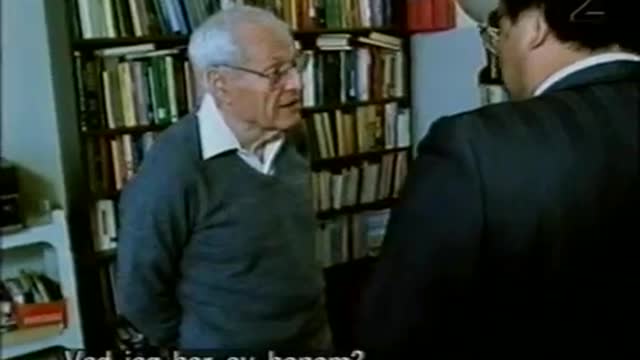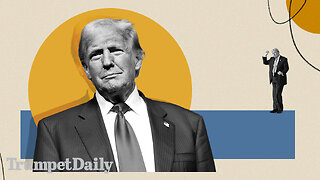Premium Only Content

The Story of Einstein’s Brain: A Japanese Professor Tracks Down the Organ in a Bizarre Documentary
The 1994 documentary above, Einstein’s Brain, is a curious artifact about an even stranger relic, the brain of the great physicist, extracted from his body hours after he died in 1955. The brain was dissected, then embarked on a convoluted misadventure, in several pieces, across the North American continent. Before Einstein’s Brain tells this story, it introduces us to our guide, Japanese scholar Kenji Sugimoto, who immediately emerges as an eccentric figure, wobbling in and out of view, mumbling awed phrases in Japanese. We encounter him in a darkened cathedral, staring up at a backlit stained-glass clerestory, praying, perhaps, though if he’s praying to anyone, it’s probably Albert Einstein. His first words in heavily accented English express a deep reverence for Einstein alone. “I love Albert Einstein,” he says, with religious conviction, gazing at a stained-glass window portrait of the scientist.
Sugimoto’s devotion perfectly illustrates what a Physics World article described as the cultural elevation of Einstein to the status of a “secular saint.” Sugimoto’s zeal, and the rather implausible events that follow this opening, have prompted many people to question the authenticity of his film and to accuse him of perpetrating a hoax. Some of those critics may mistake Sugimoto’s social awkwardness and wide-eyed enthusiasm for credulousness and unprofessionalism, but it is worth noting that he is experienced and credentialed as a professor in mathematics and science history at the Kinki University in Japan and, according to a title card, he “spent thirty years documenting Einstein’s life and person.”
-
 LIVE
LIVE
The Quartering
3 hours agoThe MAGA Wars Have Begun! Vivek & Elon Get Massive Backlash & Much More
4,199 watching -

Kim Iversen
2 days agoStriking Back: Taking on the ADL’s Anti-Free Speech Agenda
30.3K6 -
 49:35
49:35
Donald Trump Jr.
7 hours agoA New Golden Age: Countdown to Inauguration Day | TRIGGERED Ep.202
113K128 -
 1:14:34
1:14:34
Michael Franzese
5 hours agoWhat's Behind Biden's Shocking Death Row Pardons?
46.6K29 -
 9:49
9:49
Tundra Tactical
4 hours ago $1.92 earnedThe Best Tundra Clips from 2024 Part 1.
16.3K2 -
 1:05:19
1:05:19
Sarah Westall
4 hours agoDying to Be Thin: Ozempic & Obesity, Shedding Massive Weight Safely Using GLP-1 Receptors, Dr. Kazer
28K8 -
 54:38
54:38
LFA TV
1 day agoThe Resistance Is Gone | Trumpet Daily 12.26.24 7PM EST
22.6K3 -
 58:14
58:14
theDaily302
13 hours agoThe Daily 302- Tim Ballard
30.1K1 -
 13:22
13:22
Stephen Gardner
7 hours ago🔥You'll NEVER Believe what Trump wants NOW!!
80.4K209 -
 54:56
54:56
Digital Social Hour
1 day ago $8.77 earnedDOGE, Deep State, Drones & Charlie Kirk | Donald Trump Jr.
42K4